
7 Debut Novelists on Their 2017 Resolutions
Garth Greenwell, Idra Novey, Molly Prentiss and others on what's next
Resolutions are a strange tradition—not to mention a corny one. Also, they usually don’t work. After all, let’s get real: mid-winter is a terrible time to resolve to do anything other than keep warm enough to stave off death. But that doesn’t keep us from making plans for improvement every year, because there’s something deeply comforting about a resolution. It’s something to look forward to, if nothing else. To that end, I asked a handful of writers who have accomplished a great deal in 2016—to wit, published their first novels, something a number of those reading this are likely to be resolving to do at this very moment—to share some of their resolutions for the year ahead. Perhaps unsurprisingly, their resolutions center around living better, reading better, and resisting the terrifying new regime. Read on to take your 2017 cues from the honest, difficult, and decidedly un-corny resolutions of a few of 2016’s new literary greats.
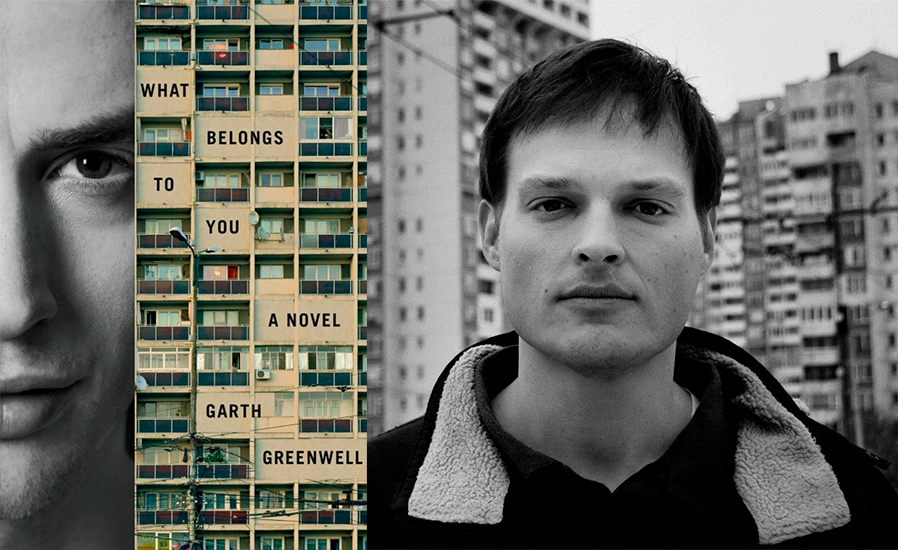
Garth Greenwell, author of What Belongs to You
1) Get off the internet. Publishing a book has meant living in a state of hypersensitivity to any whisper of news, and social media has meant that I almost always find out about things before my publisher does. My first resolution is to radically scale back the amount of time I spend connected, and to take more breaks from social media.
2) Commune with the dead. I’ve done a good bit of reviewing in the last couple of years, and I’ve tried as much as possible to read the books of people I’ve had readings or panels with. That means that in 2016 almost all of my reading came from a single country, a single time, a single language. 2017 is going to be all about reading dead people, from as many countries and languages as possible.
3) Get off the internet (2). I’ve become more and more suspicious of a what I fear is the false sense of engagement social media allows, in which retweeting an admirable sentiment can feel like activism. In 2017, I want to practice a more embodied politics. That means showing up and being counted.
4) Get to know my neighbors. For pretty much the first time in my adult life, I’m living somewhere under the presumption of permanence, and so I have a chance to invest in community in a way I haven’t before. Like too many Americans, I’ve never been involved in, or even very informed about, local politics. I have to change that.
5) Stay at home. I traveled more in 2016 than in all the other years of my life combined, and I can count on my fingers the number of days I was at home with my boyfriend. We just rented a house together in August. I’ve promised him, and myself, to spend as much of 2017 as possible at home.
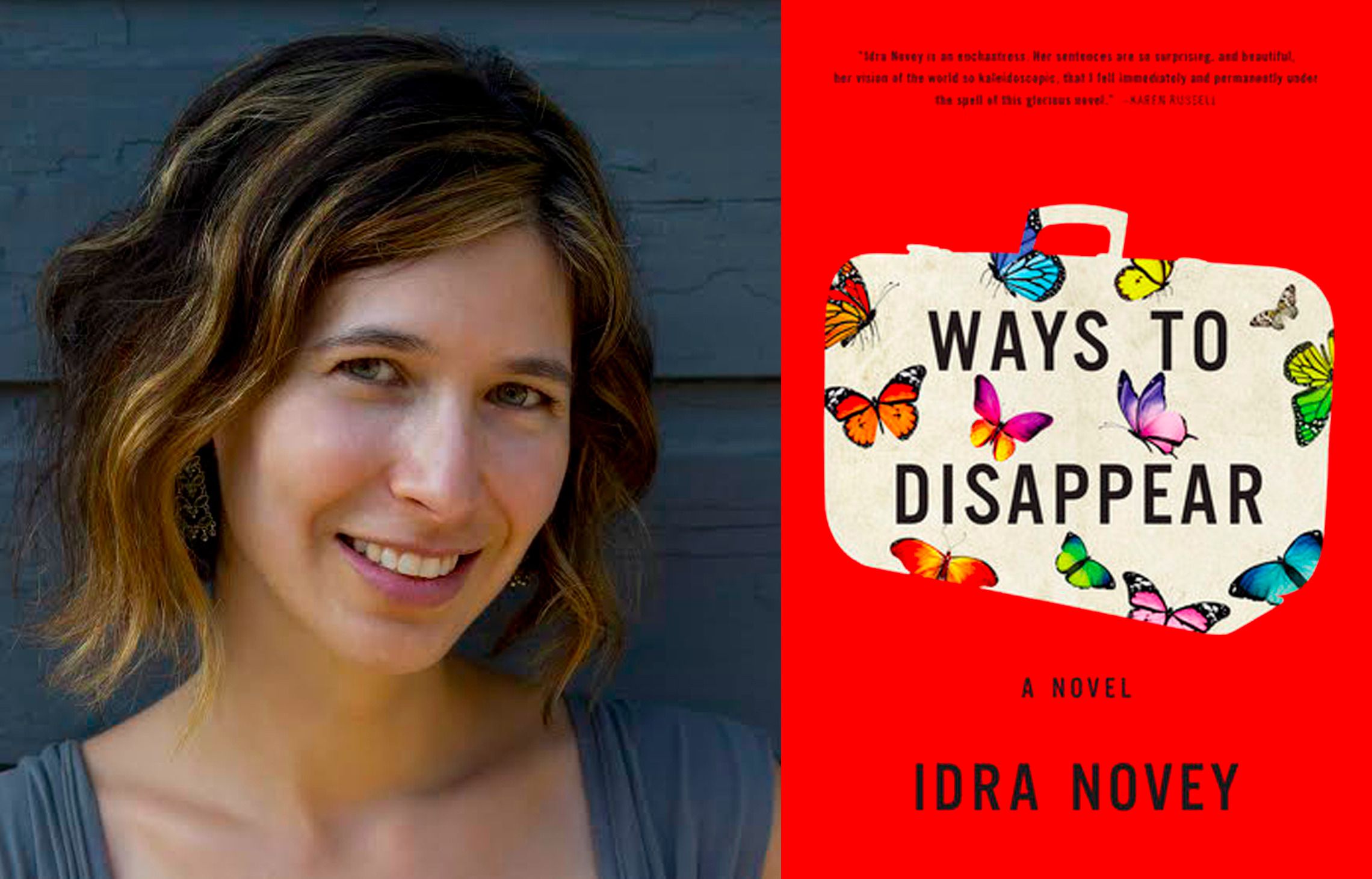
Idra Novey, author of Ways to Disappear
At a reading soon after the election in November, an overwhelming sadness came over me as I read from the fake radio reports I invented for my first novel. During many book events this year, I talked about why the objectifying, frequently misogynist voice of the Brazilian media felt necessary in the novel I wrote about an accomplished woman who nobody really understood. One reader compared the fake radio reports in the novel to a Greek chorus, singing in the shadows of the darker themes that will ultimately determine the ending.
In my echo chamber of liberal news sources, I heard about the sinister chorus of fake news reports circulating in my own country about Hillary Clinton, of Russia scheming in the shadows, but I thought the main actions in the election, the facts, would be what ultimately mattered. The lunatic hovering behind Hillary during the presidential debates couldn’t possibly end up in the White House.
It is painful to pay continual attention to the sinister chorus in the shadows. But if there is ever a time when it is crucial not to underestimate that sinister chorus, it is now.
My other resolution for the year to come is to help build and sustain a
loud
relentless
counter-chorus.
A counter-chorus unified in protecting human rights and the environment and insisting that the fight for full equality for everyone in the country MUST continue.
At a recent gathering I attended of women working in dozens of professions, all committed to social justice, we resolved to keep each other informed and involved in the larger counter-chorus, to find ways to sing together as loudly as we can.
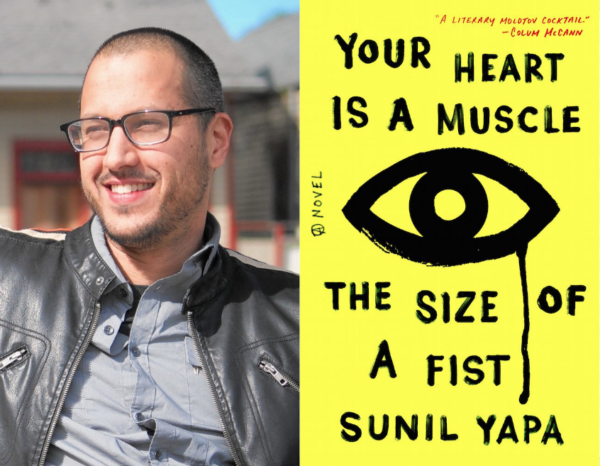
Sunil Yapa, author of Your Heart is a Muscle the Size of a Fist
In January 2016 Little Brown & Lee Boudreaux Books published my first novel, Your Heart is a Muscle the Size of a Fist. Lots of people read it, I interviewed my hero—Junot Díaz—on stage, I traveled the world to support it, and yet all year of the book tour, it seemed, I felt totally disconnected. So, here comes 2017. Resolved: find some way to read the news that doesn’t crush my spirit. Resolved: be more hopeful (really?) and be grateful (fuck yes) for every small kindness. I will be a positive presence and feel more connected to those around me. I will not bitch about my back, or my book or my schedule. I will lose 30 pounds, 20 pounds, 10 pounds. I will be happy with my weight as long as I’m healthy. Resolved: In 2017 I will take care of my mental health. I will stop obsessing about that review. And that other one. I will accept that maybe it’s not for everyone. I will continue to avoid getting drunk. I will continue to look for better ways to manage my particular madness. I will spend more time with the people I love. I will take care of them the way they’ve taken care of me. I will love them. Resolved: I will finally find time again to sit quietly and read. I will silence my phone. But not all the time. I will try hard to remember what I imagine success to be: making a meaningful life out of the days given me, making art, making real and lasting connections, and even if I spend many days alone, somehow living a life that is less lonely.
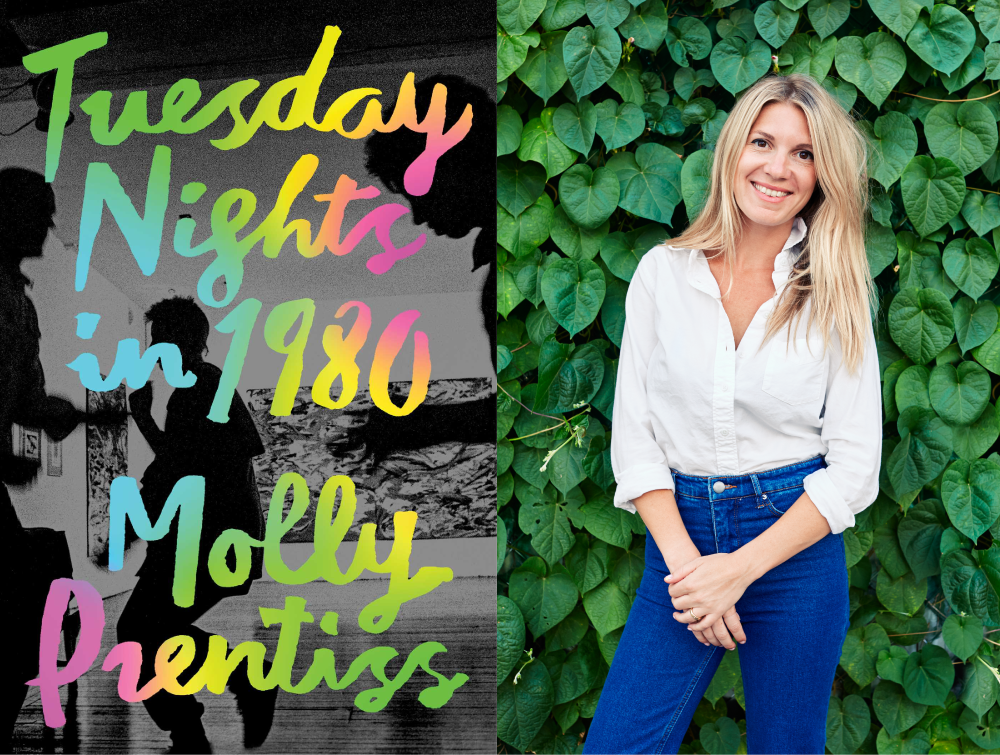
Molly Prentiss, author of Tuesday Nights in 1980
In 2017, my goal is to reorient my thinking away from what isn’t and toward what is. As a writer (and as a human), I often find myself feeling inadequate or guilty or in some way lacking—I haven’t done enough work today, what I make is not good enough, no one cares, etc. (This is common, I think, as creative workers are, practically by definition, never satisfied.) But I think there is a way to access satisfaction and peace even within the arduous creative process, and I want to try to do that this year. It is such a lucky job, really, to be constantly searching, constantly attempting, constantly failing and beginning again, constantly turning the world over in your hands and examining it. It is an endless job—one that will never be complete or whole, one that you can never check off your list—but that is precisely what makes it interesting. There is abundance in the abyss; I want to remember that. I’m also interested in trying to be more focused in my reading life (i.e. finishing one book before I start another one), as well as growing out my armpit hair in aesthetic opposition to Trump.
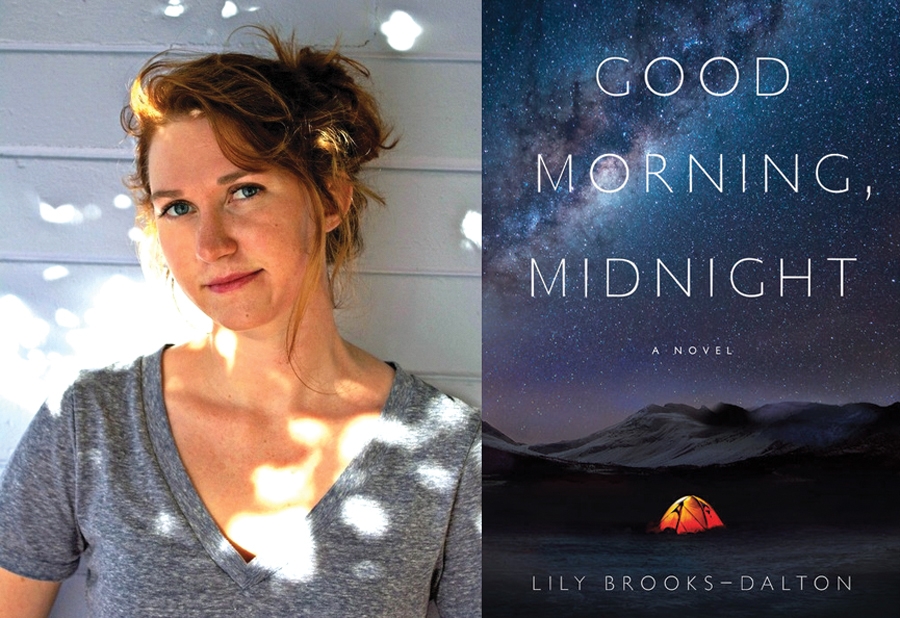
Lily Brooks-Dalton, author of Good Morning, Midnight
I resolve to write more letters this year. Not to my friends, not to distant pen pals, but to the officials who are holding the reins of our country. I resolve to stop thinking of myself as an un-political person and start thinking of myself as someone who puts pen to paper in the face of injustice and questionable ethics.
I have thought long and hard about how to fold action and protest into my life in recent months, because the truth is I’m not an organizer and I’m not a seasoned activist—it’s okay, and it’s also not an excuse. I have been asking myself, how can I contribute? How can I be effective? How can I wield my privilege in a way that isn’t just about donating money to organizations in need (although that is vital and I resolve to keep that up, too)? The answer was here at my desk all along. And sure, I hope that somewhere along the way I write another book, but let’s be honest—that’s a project with space to breathe. This year, the urgency lies in a different direction.
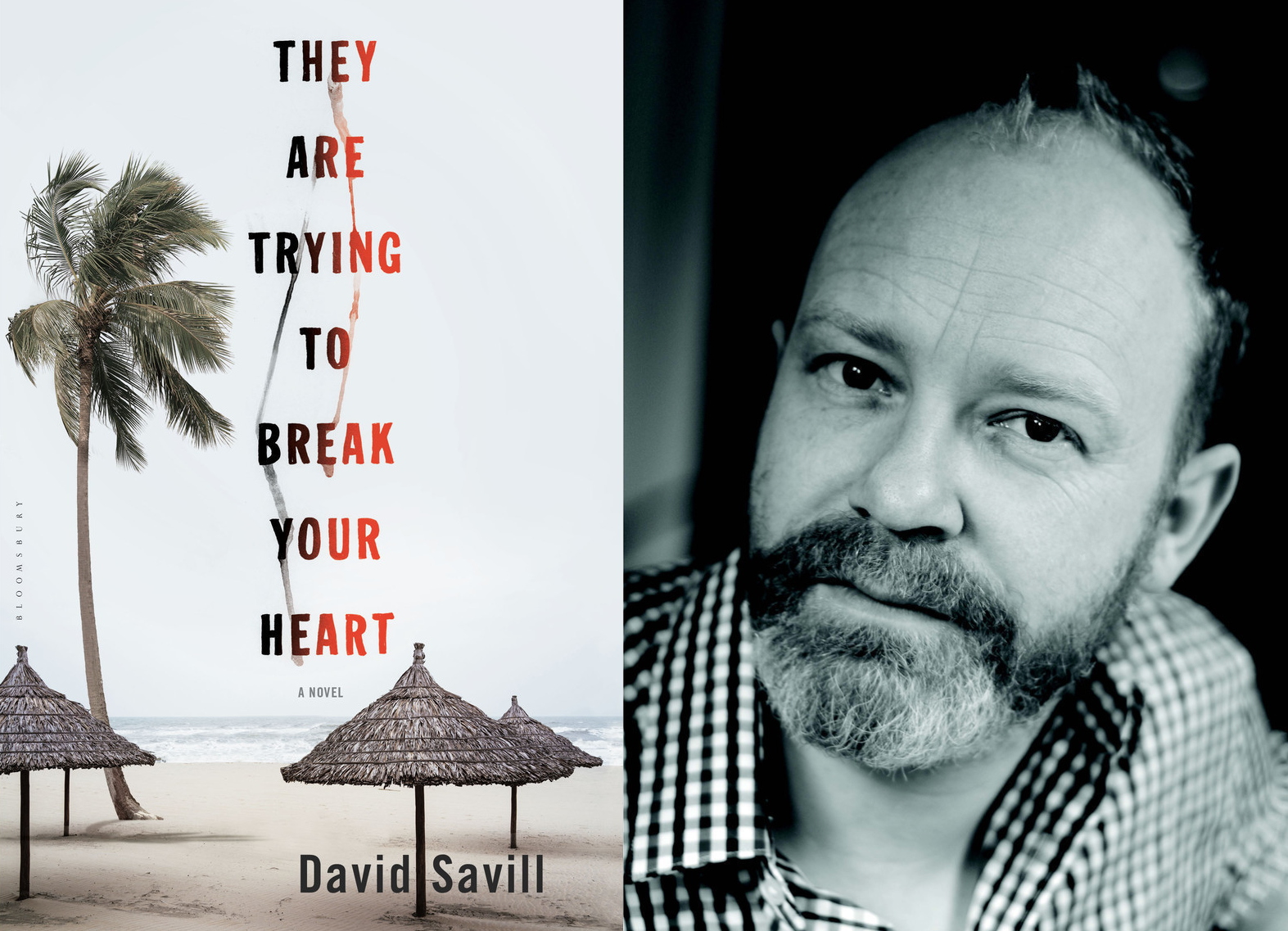
David Savill, author of They Are Trying to Break Your Heart
1. Give back to wife and children all the time stolen from them by the writing of my first novel.
2. Re-mortgage time given back to wife and children and use as a loan to finish writing second novel with the promise to pay the lender (wife and children) double time.
3. Continue to kiss my wife and children every day, and as I do so, remember how lucky I am.
4. Read the work of every student I teach with the faith of a man who on finding his home razed to the ground by a hurricane, sees only the land on which he can build a new future.
5. Remember every day, that my students are the future, and every day have the courage to ask them what it will look like.
6. Wage a one-man guerrilla war on the lack of hope, faith and vision destroying the words community, empathy, and love.
7. Make and distribute baseball caps which say: “I respect expertise,” and “Let’s make evidence-based-reasoning work again.”
8. Separate fact from truth in everything I read, and then make new truth from the facts.
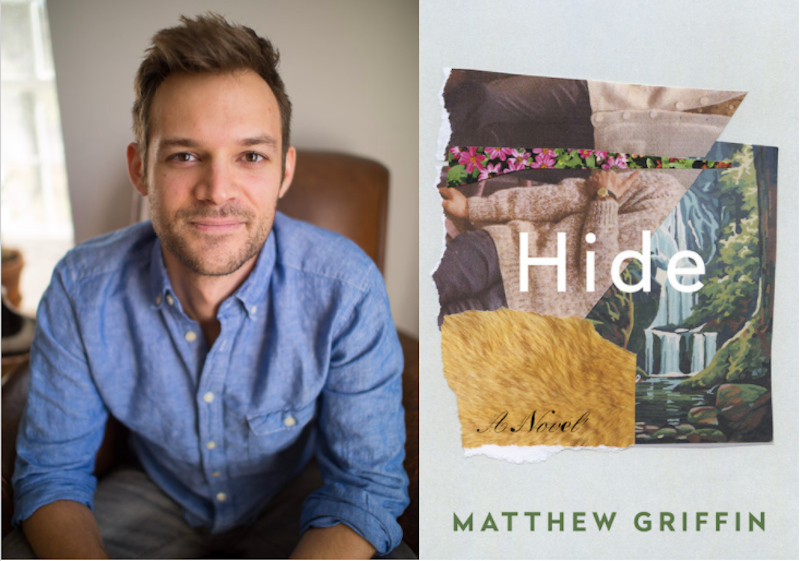
Matthew Griffin, author of Hide
I have been thinking, as the year ends, about what art means in times like these, when cracks seem to branch through our country’s highest ideals—about whether a book can buttress democracy and bolster freedom, whether a book can keep them from crumbling. I have worried about what a book can do, really do, for people of color and women and immigrants and LGBTQ people and my little niece and my newborn nephew and the earth itself, for the mountains of Gatlinburg burning and the melting polar icecaps and the animals that live among them. The people are more important than the ideals; the polar bears are alive, breathing.
In the days right after the election, I thought that anything I might write must be a weapon. I wanted to write a book that would outrage and disgust The Trump Voter, a book in which undocumented immigrants flood the country and take all the jobs, every single job, and women gleefully and carelessly move through this world without ever once having to consider a man’s opinion about anything, and private industry and go-getting attitudes are forever banned, and every white person’s money is taken away and redistributed equally and only people of color are allowed to hold public office and then people of a thousand ineffable genders and no gender at all have a big pansexual orgy on a shining array of publicly-funded solar panels, or something like that, I don’t know. I didn’t get very far.
Because, really, I don’t want all of those things (only some of them), and because it would be, in its way, a book of anger and spite and blame and all those ugliest things about us that the president-elect embodies, and if there is one book I do not want to write, it is a book that resembles that guy in any way.
If a book is to be a weapon, I think now, it should open the kind of wound that is useful, the kind of wound that wakes you up to the people around you. There’s a reason Kafka’s axe was aimed inward. But a book can also be a balm, and a book can be sustenance. A book can be a reminder of the good things in other people that are worth fighting for, and of the good things in ourselves when too much fighting makes us start to forget.
And so that is my resolution: to try my very hardest write something that binds me to this world, that helps me see it, in all its ugliness and all its beauty, and gives me strength to fight for the things living in it.
Also: to drink less. Or maybe more. Let’s just see how the year goes.
Emily Temple
Emily Temple is the managing editor at Lit Hub. Her first novel, The Lightness, was published by William Morrow/HarperCollins in June 2020. You can buy it here.



















